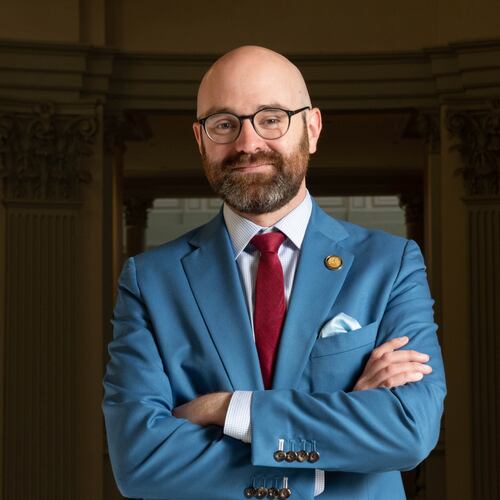Future nominees of the city of Atlanta’s ethics board will need Atlanta City Council approval, a switch from the current nominating process that allows seven outside groups to elect candidates to keep the organization independent.
Hoping to avoid an April court challenge that shot down DeKalb County ethics board because it was not appointed by elected officials, the Atlanta council sought to change the rules to give city officials a larger and hopefully legally sound role in signing off on ethics board membership.
It resulted in a nearly four hour debate Tuesday that saw some members accusing their colleagues of using the controversial legislation as a political football.
“We should be submitting an amicus brief to the Supreme Court fighting for the independence of the ethics board,” City Council President Ceasar Mitchell, who is running to succeed Mayor Kasim Reed, said referring to DeKalb’s decision to appeal the ruling by Superior Court Judge Asha Jackson to the Georgia Supreme Court.
But Atlanta City Councilwoman Keisha Lance Bottoms, who is also running for Atlanta mayor, said the Council has a duty to protect the organization.
“It would be wholly irresponsible to allow our ethics board to continue as constituted if it is ripe for a (court) challenge,” she said.
The issue of the board’s independence has been brewing for the past couple of weeks after its six members learned the city was considering making the changes. The ethics board members, who said they have not been consulted on changes, sought Mitchell’s help in slowing down the legislation.
To quell the brouhaha, the Council retained all the current board members on for the remainder of their terms as part of the legislation. The Council also inserted language meant to eliminate a mayor’s ability to appointment board members, making the executive office just a pass through for nominees.
The board was formed in 2002 under former Mayor Shirley Franklin and has been hailed nationally as one of the best city ethics organizations in the nation. Its members are nominated for three-year terms by the Metro Atlanta Chamber, Atlanta Planning Advisory Board, the Atlanta Business League, the Gate City Bar Association, the League of Women Voters of Atlanta-Fulton County, the Atlanta Bar Association and six Atlanta colleges, including Spelman College and Georgia Tech.
Critics of City Hall said the move to strip the board of its independence is payback by Reed because the board challenged "free" tickets for Invest Atlanta from Mercedes-Benz Stadium. Invest Atlanta, the city's economic development arm, said in July it negotiated access to the stadium for economic development purposes as part of the city's agreement to fund $200 million of the $1.5 billion stadium with hotel-motel tax collections.
“I understand this is something that the mayor wants and he usually get what he wants,” William Perry, executive director and founder of Georgia Ethics Watchdog, said, imploring the Council to stand up against the mayor.
Reed, who made a surprise appearance at the marathon, shot back. He said he did not think the legislation would be controversial given what had happened in DeKalb and called the idea of his office or council members hoping to score “free” silly.
“I don’t have an ax to grind with the board,” Reed told the Council. “Don’t let people shame you from signing this.”
About the Author
Keep Reading
The Latest
Featured



